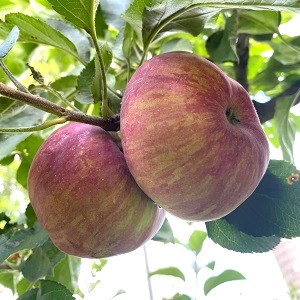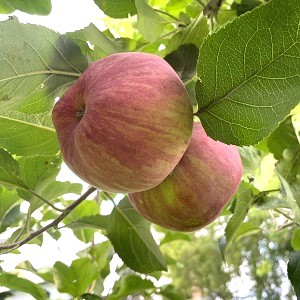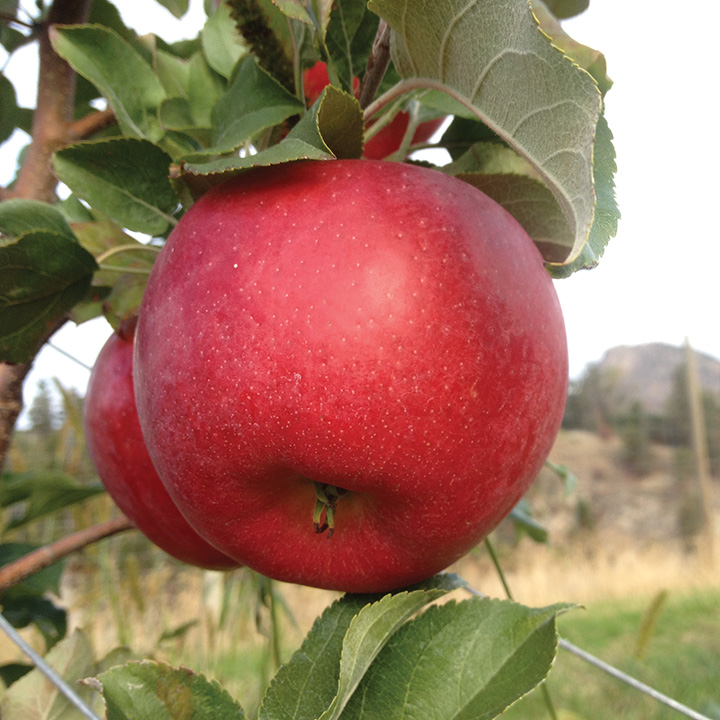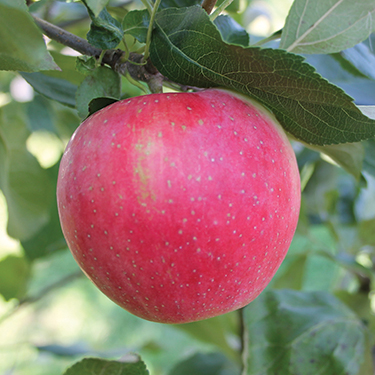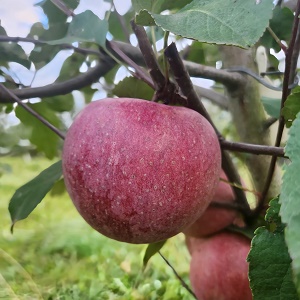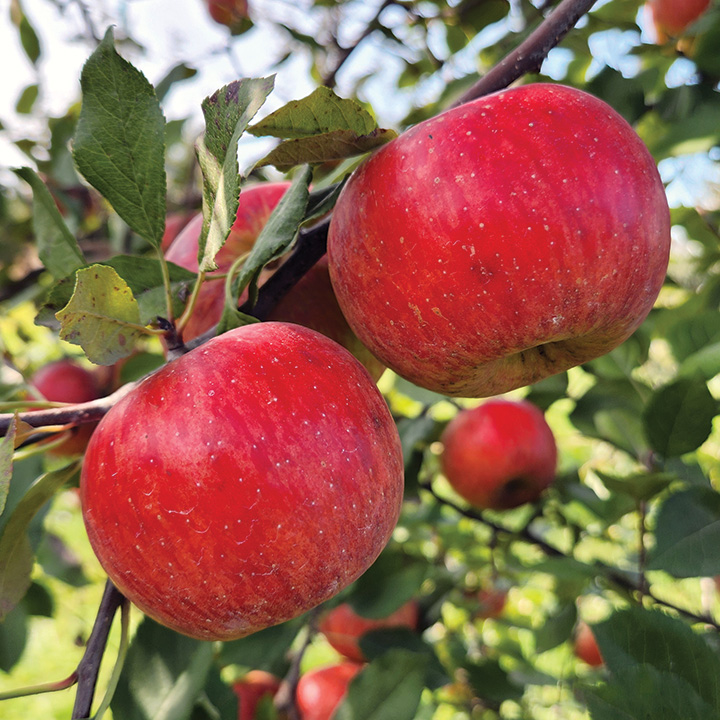Subtotal: $53.95
Apple : CONESTOGO Large Semi-Dwarf (B118) (Orchard Grade)
$29.95
An 'orchard grade' is a tree that may be somewhat shorter, slightly crooked, or a bit scratched, or for some other reason is not a perfect front lawn specimen. These trees will work just as well in an orchard as a first or number one would, since they still produce the very same fruit.
The story of the Conestogo comes complete with whimsical Johnny Appleseed connotations. It begins a generation or so ago, with a housewife from the village of Conestogo, ON, who ate an unnamed apple at a friend's home. It left such an impression on her, she determined to plant the seeds. Now, of course, any reputable nurseryman would have advised her against it. The odds of apple seedlings producing great fruit are similar to being hit by lightning. On Christmas Day! But, she didn't ask. Like the little red hen, she went ahead and planted them. One of them grew and in due time, apples appeared on it's spreading branches. And lo-they were not merely acceptable, but closer to sublime! Rather large, with a distinctive knobby shape, a crispy-crunchy texture, and a pleasant, aromatic flavour, the apple made immediate friends. It has proven to be very versatile, being equally at home in pies and sauce as fresh eating. The tree is well on in years and continues to prosper although treated with benign neglect. In the few years since we've become aware of it, many in our family have come to regard the apple as a personal favourite. We have no idea how the Conestogo will perform in different parts of the country, so we've made it available at a special introductory price, in hopes it will generate feedback from all over.
NEEDS A POLLENIZER | ZONE 4? | HARVEST : MID-LATE SEPT
Growing Tips
Besides selecting the most disease resistant varieties, there are
a few simple things to do to have better apples.
- Fertilize under the outer edges of your trees. There are no feeder roots next to the trunk. A well fed tree stays healthier. (Adequate calcium in the soil also helps so that apples keep longer.)
- Pick up fallen fruit and compost, dispose of, or feed to livestock (where possible).
- Rake up leaves in the fall and compost them away from the orchard.
- Prune trees to encourage light and air to reach the inside of the tree.
- Provide bird nesting sites near your orchard. A variety of orchard companion type plants will attract native pollinator insects and also encourage birds to come and eat insect pests.
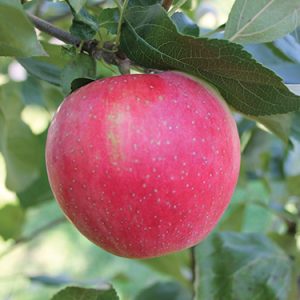 Apple : KINDERKRISP Large Semi-Dwarf (B118)
Apple : KINDERKRISP Large Semi-Dwarf (B118) 